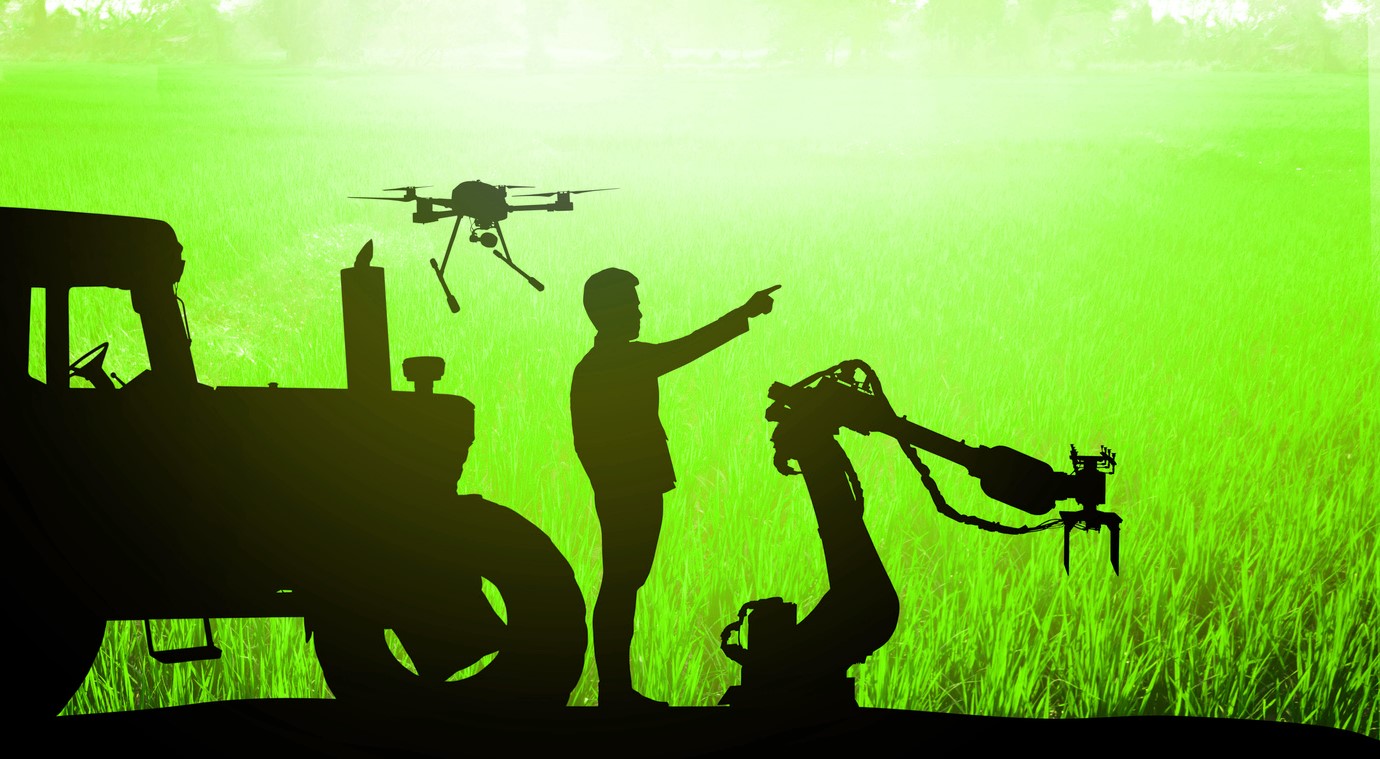Agriculture is the backbone of Pakistan’s economy, providing employment in AI in agriculture and sustenance to a significant portion of the population. In recent years, the country has witnessed the integration of artificial intelligence (AI) into the agricultural sector, revolutionizing traditional practices and paving the way for smarter and more sustainable farming methods. This article explores the applications of AI in agriculture in Pakistan, highlighting its benefits, challenges, and future prospects.
Explore The Contents
AI Applications in Agriculture
Crop Monitoring and Management
AI technologies, coupled with remote sensing and satellite imagery, are being employed to monitor crop health, detect diseases, and optimize irrigation practices. Machine learning algorithms analyze the collected data, providing farmers with valuable insights on the status of their crops. By identifying potential issues at an early stage, farmers can take proactive measures to prevent crop damage and optimize resource utilization.
Precision Agriculture
Precision agriculture involves the use of AI-powered sensors, drones, and robots to collect real-time data on soil conditions, weather patterns, and crop growth. This data is then processed and used to create precise prescriptions for irrigation, fertilization, and pesticide application. By adopting precision agriculture techniques, farmers in Pakistan can minimize resource wastage, reduce environmental impact, and maximize crop yield.
Automated Machinery and Robotics
AI-driven machinery and robotics are transforming agricultural practices in Pakistan. Automated systems can perform tasks such as planting, harvesting, and weeding with precision and efficiency. These machines are equipped with computer vision and machine learning capabilities, enabling them to detect and respond to crop variations and environmental conditions. By automating labor-intensive processes, farmers can optimize their operations, reduce labor costs, and improve productivity.
Crop Yield Prediction
AI algorithms are used to analyze historical data, environmental factors, and crop characteristics to predict crop yields. This information is crucial for farmers and policymakers to make informed decisions regarding resource allocation, market forecasting, and supply chain management. Accurate yield predictions enable farmers in Pakistan to plan their cultivation strategies, manage risks, and optimize profitability.

Pest and Disease Management
AI-based systems can identify and diagnose crop diseases and pest infestations, allowing farmers to take timely preventive measures. Machine learning models trained on large datasets can recognize patterns and symptoms, enabling quick and accurate detection. With early detection and targeted interventions, farmers can minimize crop losses and reduce dependence on chemical pesticides, leading to more sustainable and environmentally friendly agriculture practices.
Benefits of AI in Agriculture
Increased Productivity and Efficiency
By harnessing AI technologies, farmers in Pakistan can significantly increase their productivity and operational efficiency. AI-powered systems enable real-time monitoring, data analysis, and precise resource management, leading to optimized cultivation practices and higher crop yields. This, in turn, contributes to food security and economic growth.
Resource Optimization
AI-driven precision agriculture techniques help farmers in Pakistan optimize the use of resources such as water, fertilizers, and pesticides. By providing accurate recommendations for resource allocation, AI technologies reduce waste and minimize the environmental impact of farming practices. This ensures sustainable agriculture and preserves natural resources for future generations.
Risk Mitigation and Decision Support
AI-powered crop monitoring and yield prediction systems provide farmers with valuable insights and decision support. By having access to accurate information about crop health, weather patterns, and market conditions, farmers can make informed decisions regarding planting schedules, resource allocation, and market engagement. This helps mitigate risks and enhances the profitability of agricultural operations.
Economic Growth and Rural Development
The integration of AI in agriculture creates opportunities for economic growth and rural development in Pakistan. By adopting advanced technologies, farmers can enhance their income, create employment opportunities, and contribute to the overall socioeconomic development of rural areas. AI-driven agriculture also attracts investment and fosters innovation, leading to a thriving agricultural ecosystem.
Challenges and Future Prospects
Data Accessibility and Quality
One of the major challenges in implementing AI in agriculture in Pakistan is the accessibility and quality of data. Reliable and extensive datasets are crucial for training AI models and generating accurate insights. Efforts should be made to collect and standardize agricultural data, ensuring its availability to all stakeholders.
Adoption and Awareness
Promoting the adoption of AI technologies among farmers and raising awareness about their benefits is another challenge. Training programs, capacity building initiatives, and government support can help educate farmers about the potential of AI in agriculture and facilitate the integration of these technologies into their farming practices.
Collaboration and Research
To fully harness the potential of AI in agriculture, collaboration between stakeholders is essential. Public-private partnerships, academic-industry collaborations, and research investments can drive innovation, develop localized AI solutions, and address specific challenges faced by farmers in Pakistan. Smart farm agriculture precision technology concept. Silhouette of farmer , automation robot arm machine , uav drone , tractor truck and rice field background. Flare light effect. (Smart farm agriculture precision technology concept. Silhouette of far

Future Prospects
The future of AI in agriculture in Pakistan looks promising. As technology continues to advance, AI applications will become more sophisticated, cost-effective, and accessible. The integration of AI with other emerging technologies like the Internet of Things (IoT) and blockchain can further enhance the efficiency and transparency of agricultural processes.
Conclusion
AI is revolutionizing the agricultural landscape in Pakistan, empowering farmers with advanced tools and insights to optimize their operations and improve productivity. The adoption of AI in agriculture offers numerous benefits, including increased productivity, resource optimization, risk mitigation, and economic growth. While challenges exist, concerted efforts in data accessibility, awareness, collaboration, and research can pave the way for a smarter and more sustainable agricultural sector in Pakistan.
Read More: Pakistan’s Future in AI
FAQs AI in Agriculture Industry in Pakistan
Are AI technologies affordable for small-scale farmers in Pakistan?
AI technologies are becoming more accessible and affordable over time. The government and agricultural organizations in Pakistan are working to promote the adoption of AI among small-scale farmers through subsidies, training programs, and support schemes.
Can AI completely replace human labor in agriculture?
AI technologies can automate certain tasks and improve efficiency, but human intervention and expertise remain crucial in agriculture. AI complements human efforts by providing valuable insights and support for decision-making.
How can AI help with water management in agriculture?
AI-powered sensors and algorithms can monitor soil moisture levels and weather patterns, enabling precise irrigation management. By optimizing water usage, AI technologies help conserve water resources and reduce water-related costs.
Are there any ethical concerns associated with AI in agriculture?
Ethical considerations such as data privacy, algorithm bias, and the impact on labor should be taken into account when implementing AI in agriculture. It is important to ensure that AI technologies are developed and deployed responsibly, considering the social and environmental implications.
What role does the government play in promoting AI in agriculture in Pakistan?
The government of Pakistan plays a vital role in promoting AI in agriculture through policy frameworks, funding, and research support. Initiatives such as providing financial incentives, establishing innovation centers, and facilitating collaborations create an enabling environment for AI adoption in the agricultural sector.
Read More: Automotive Technology in Pakistan 2023




